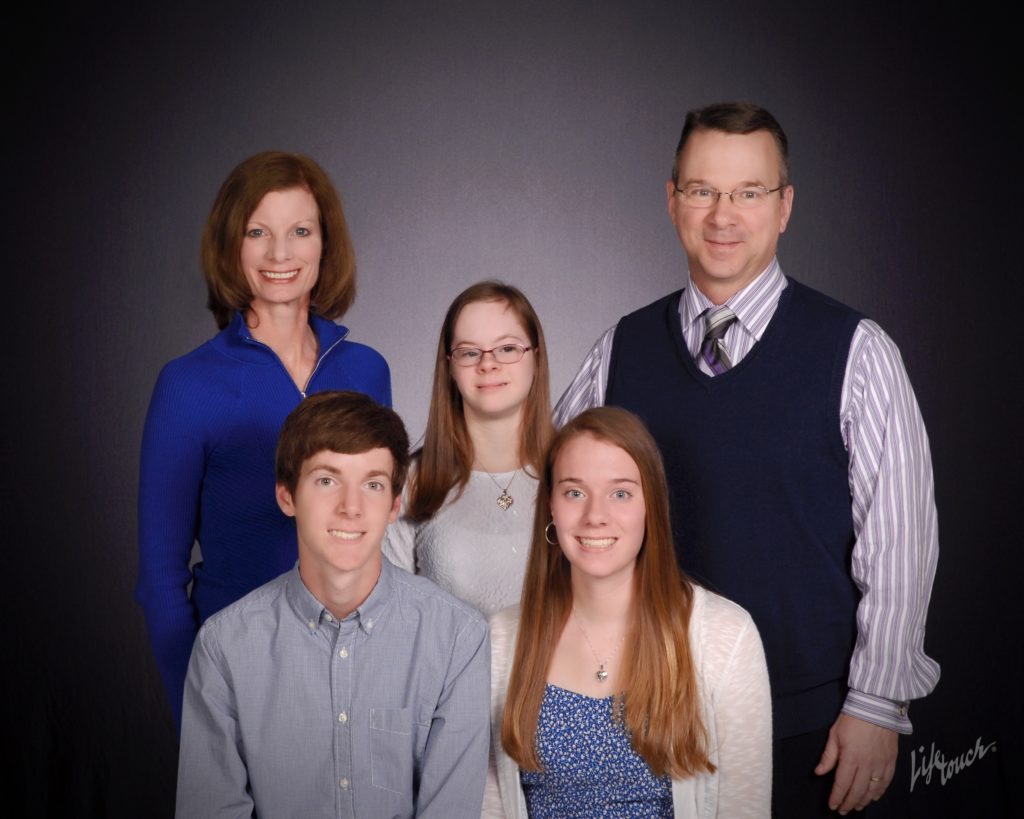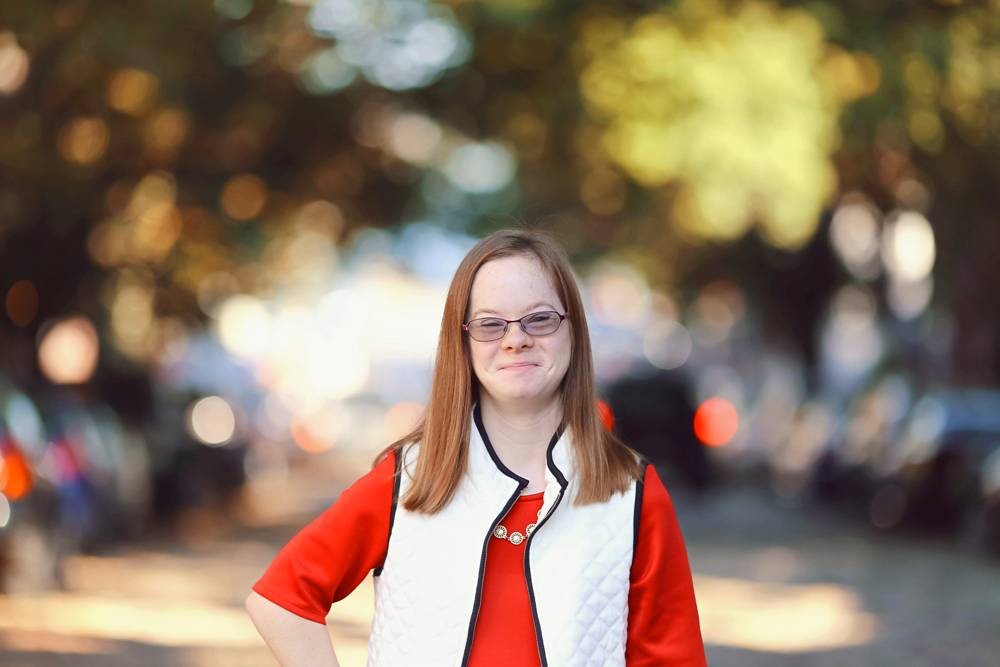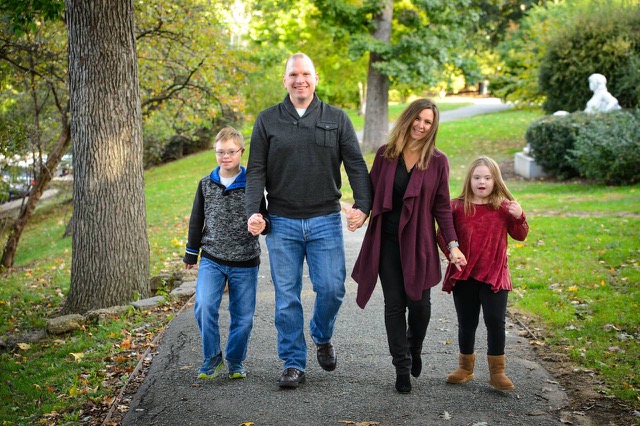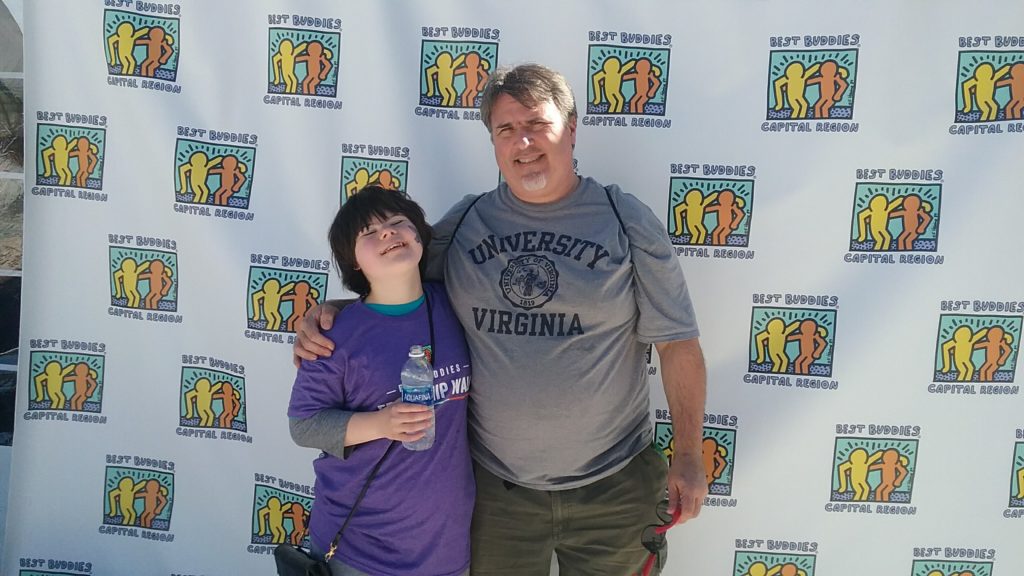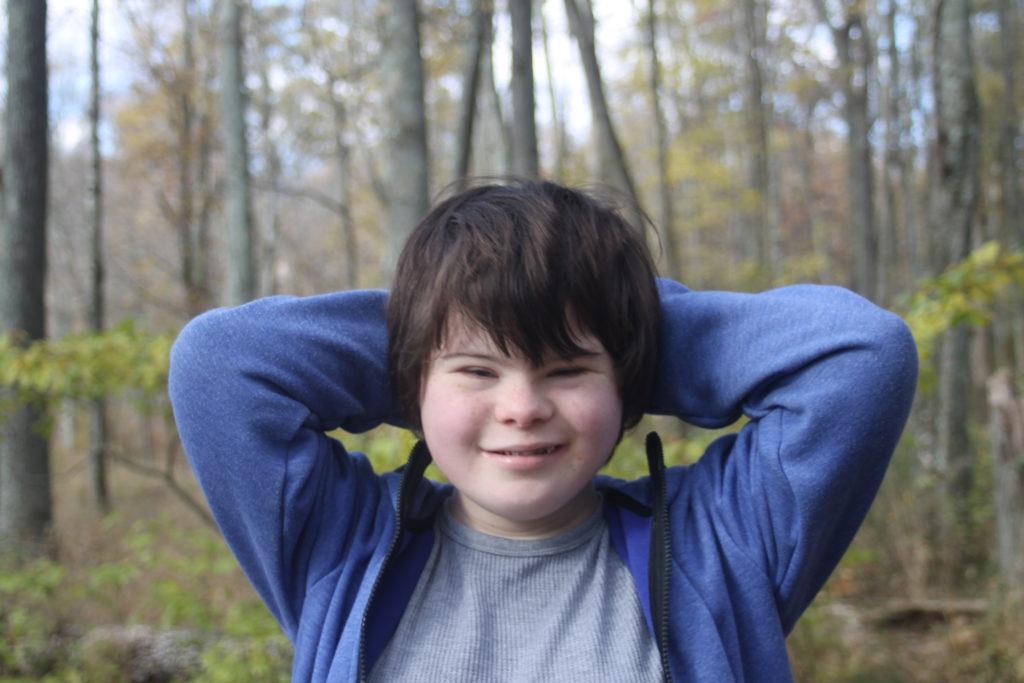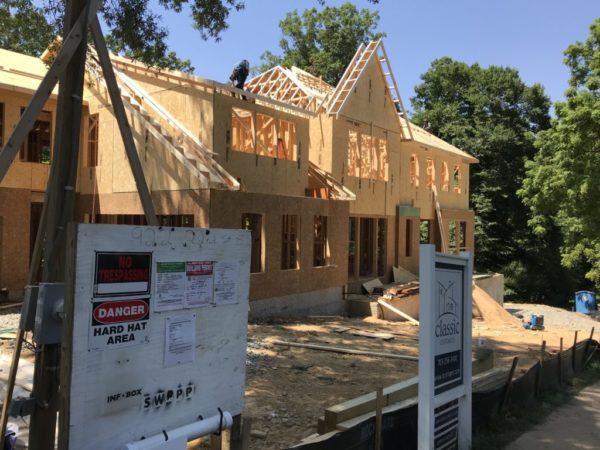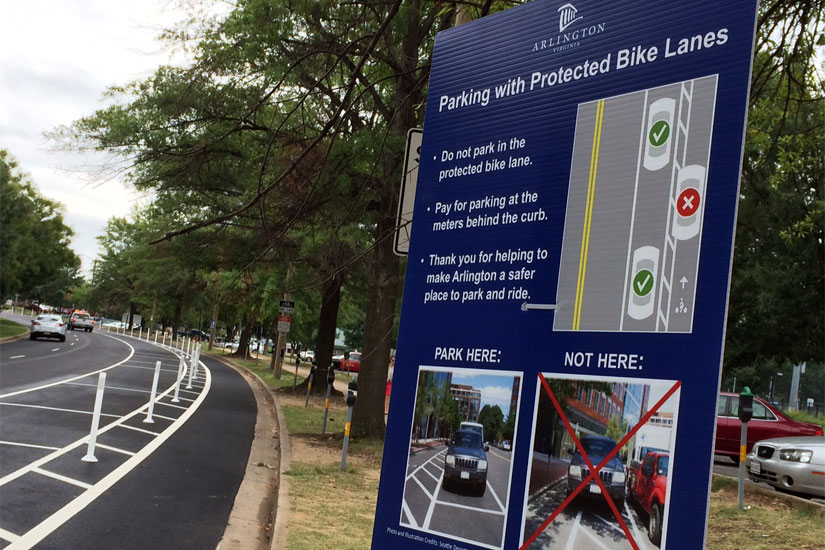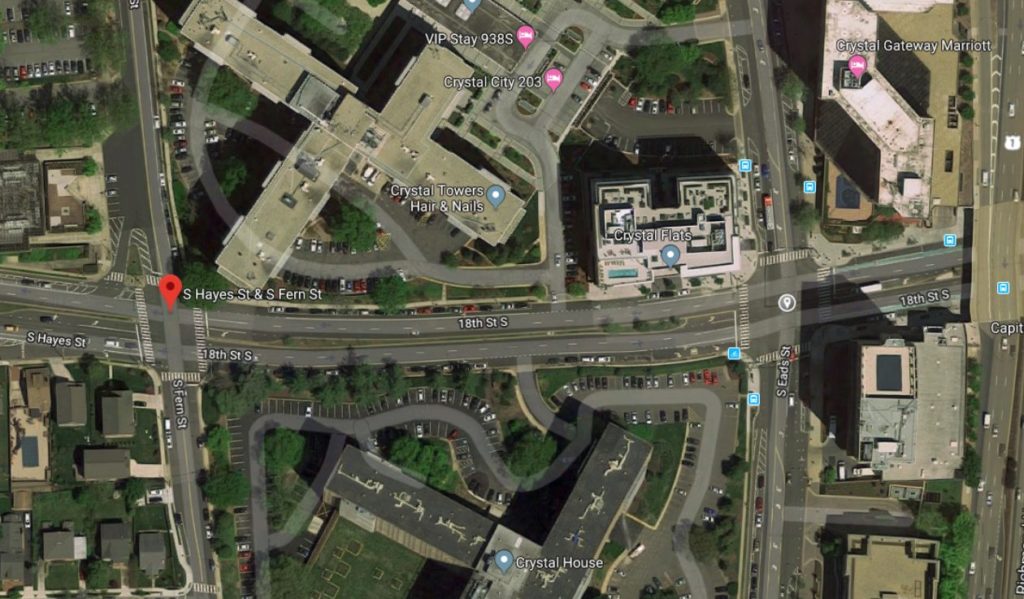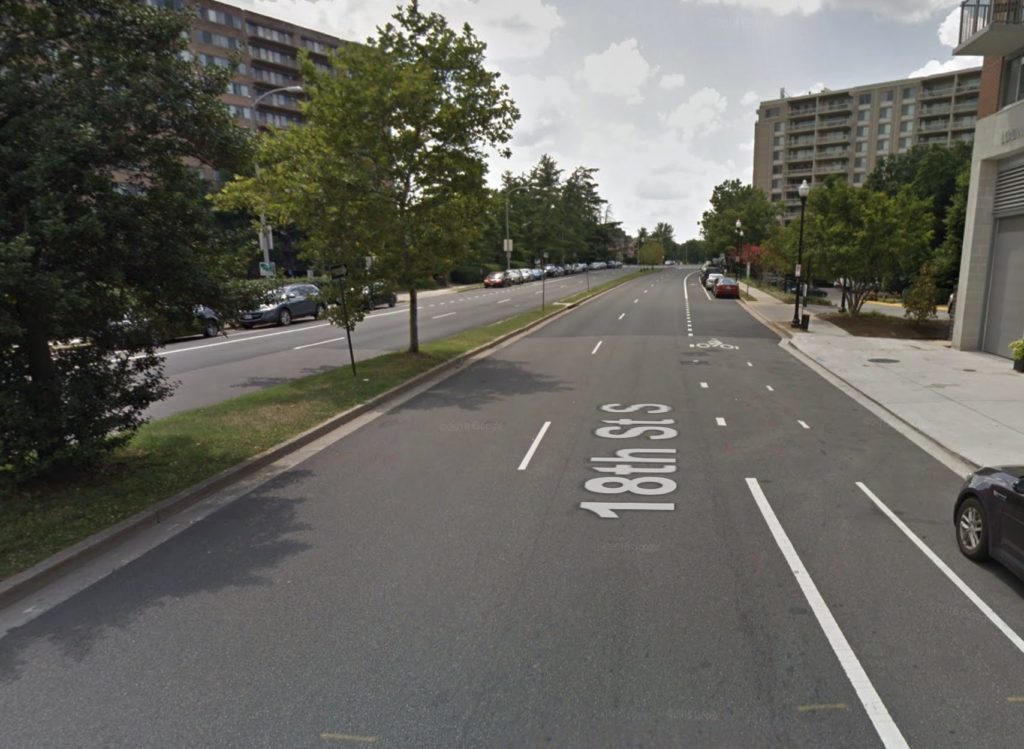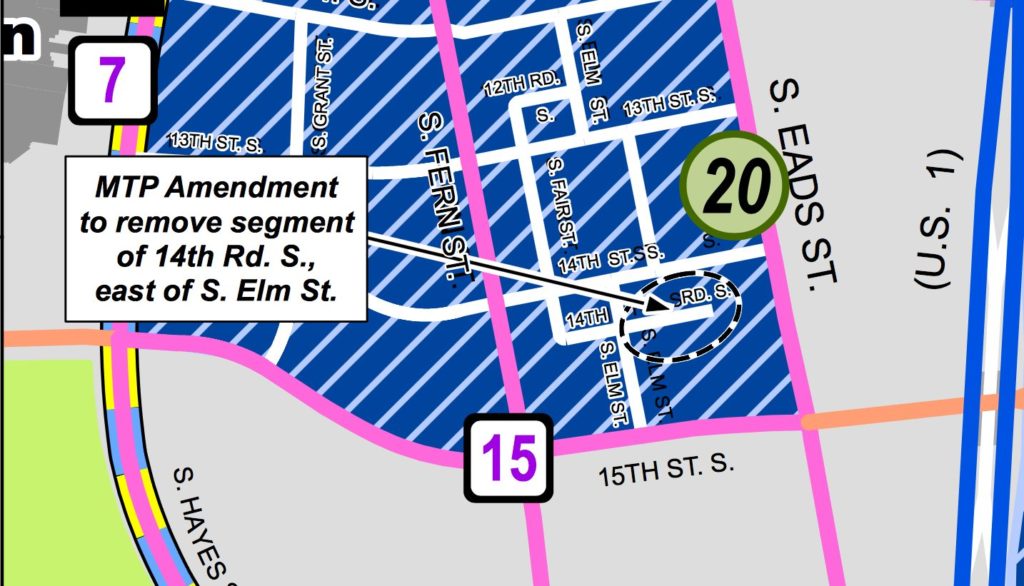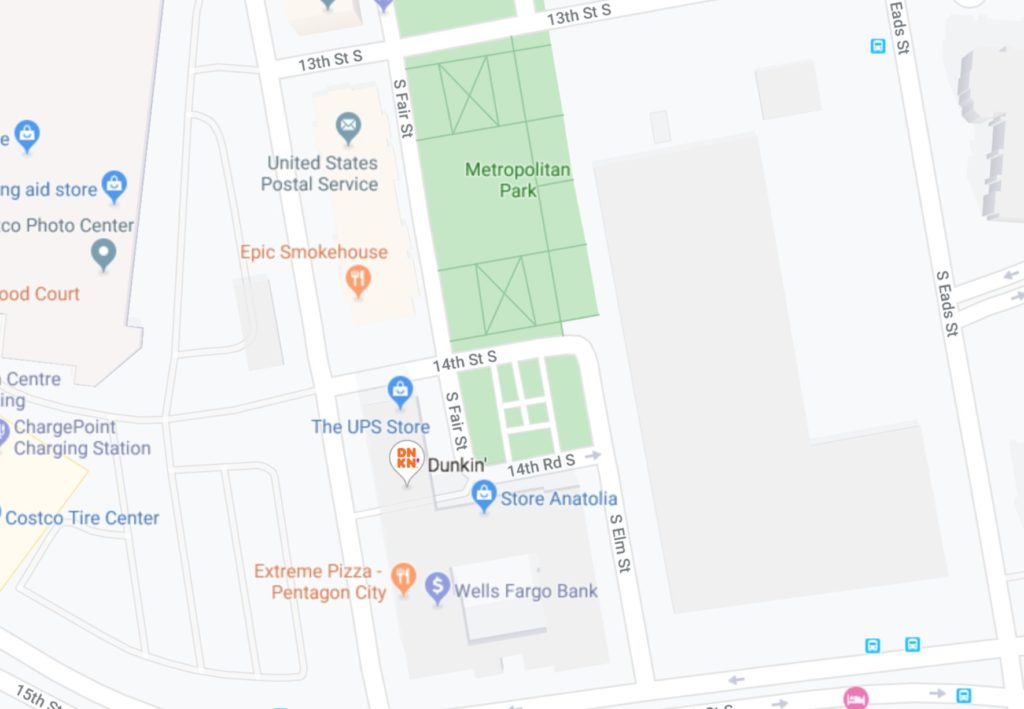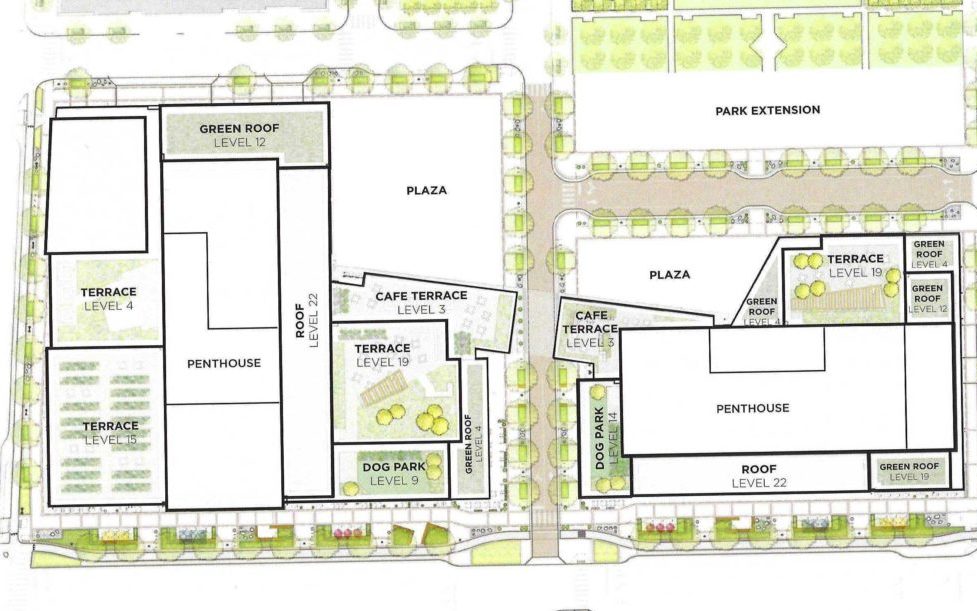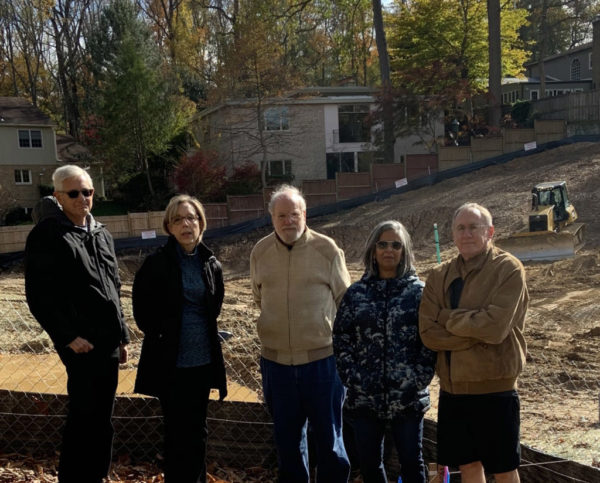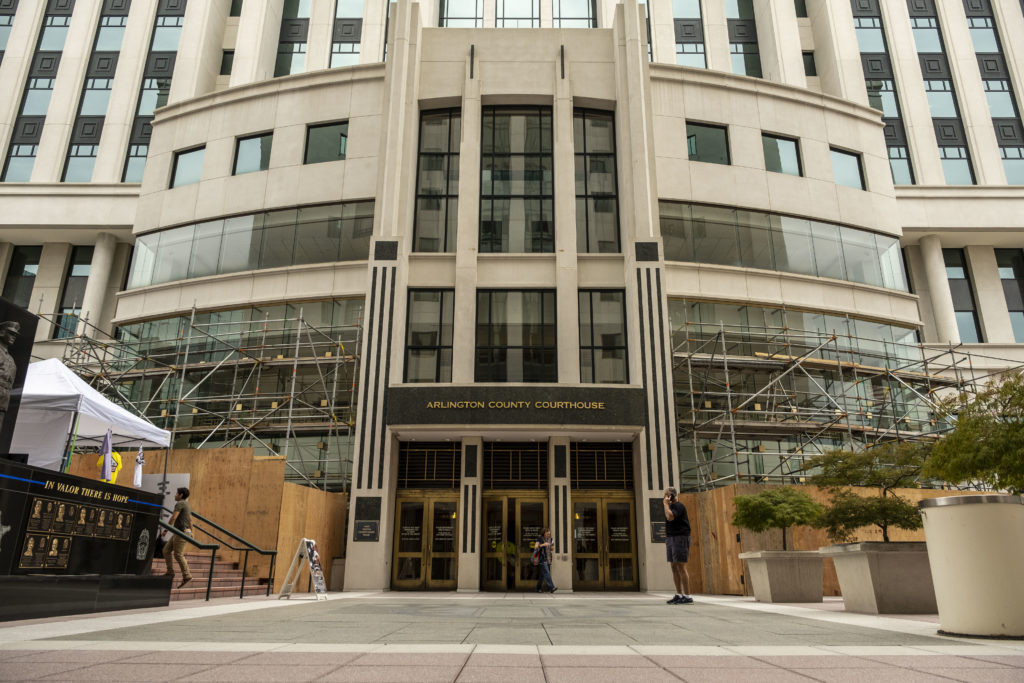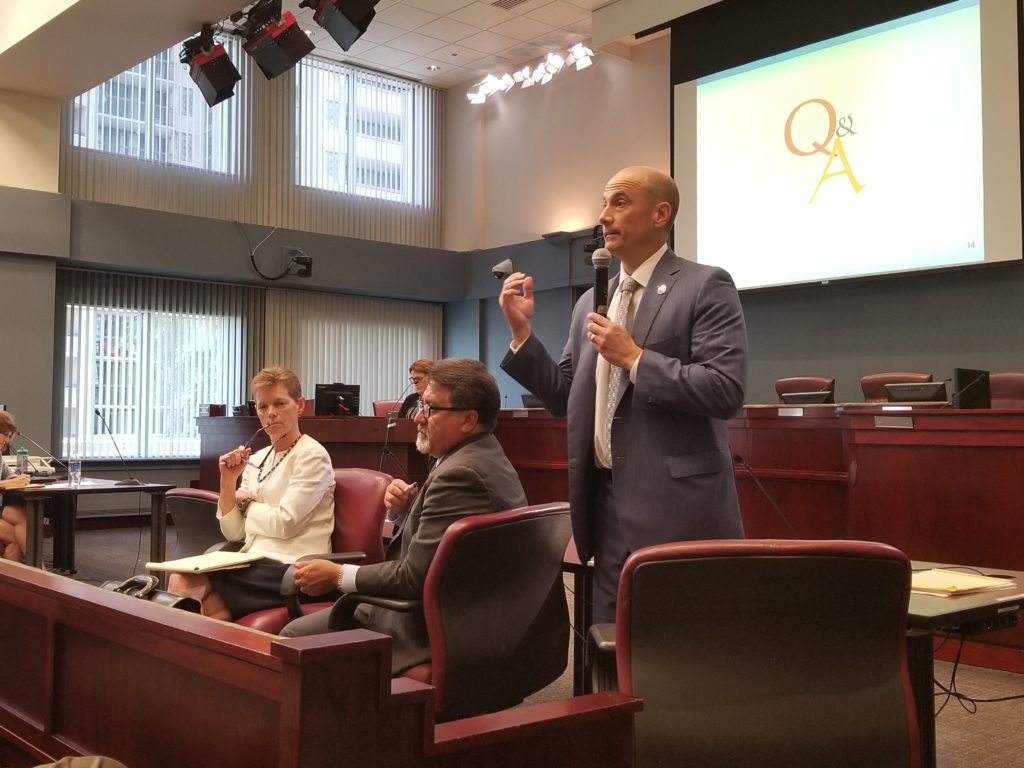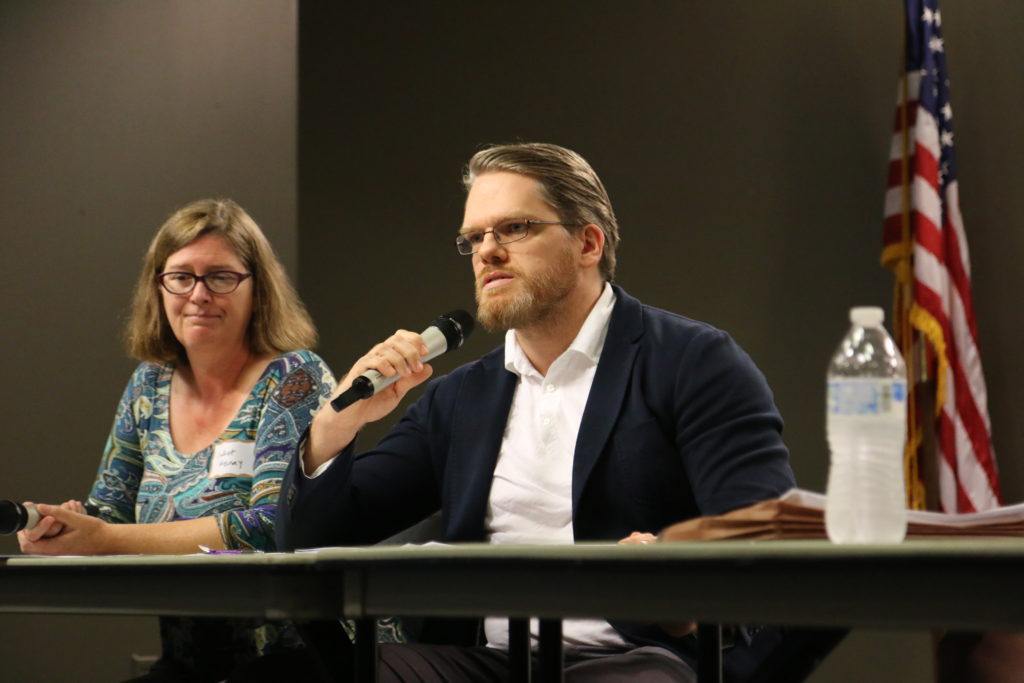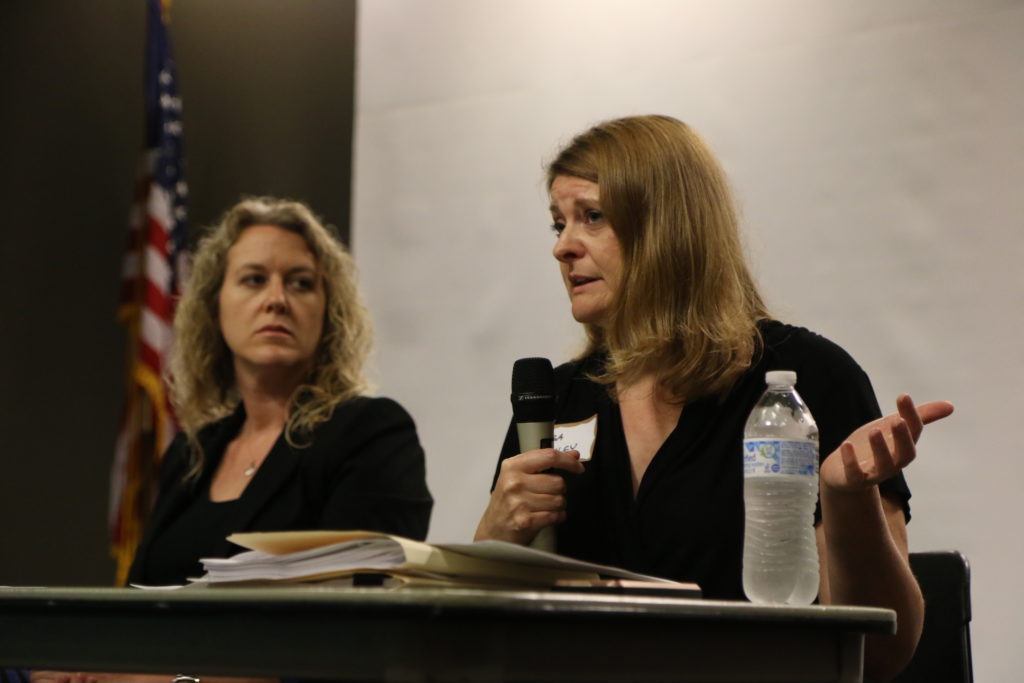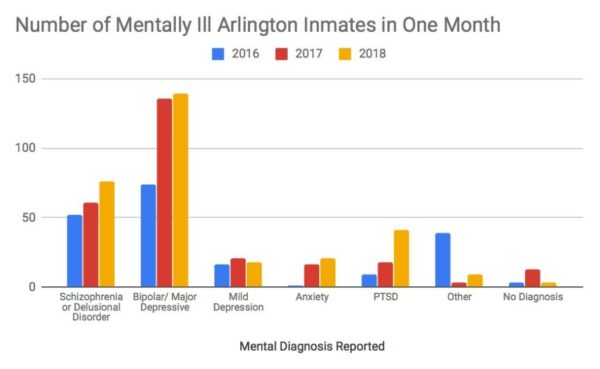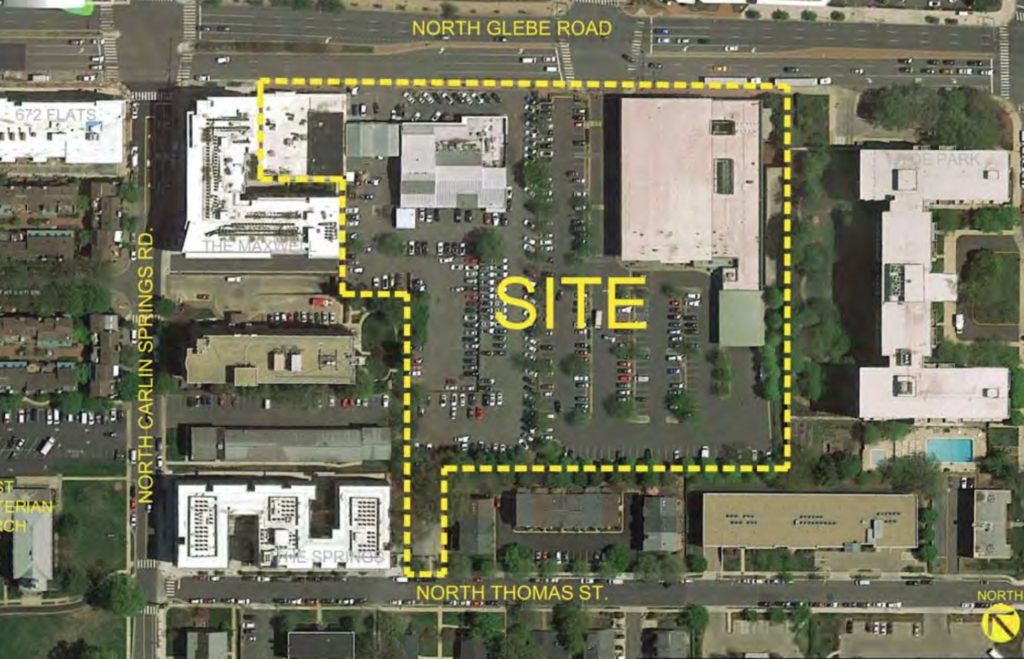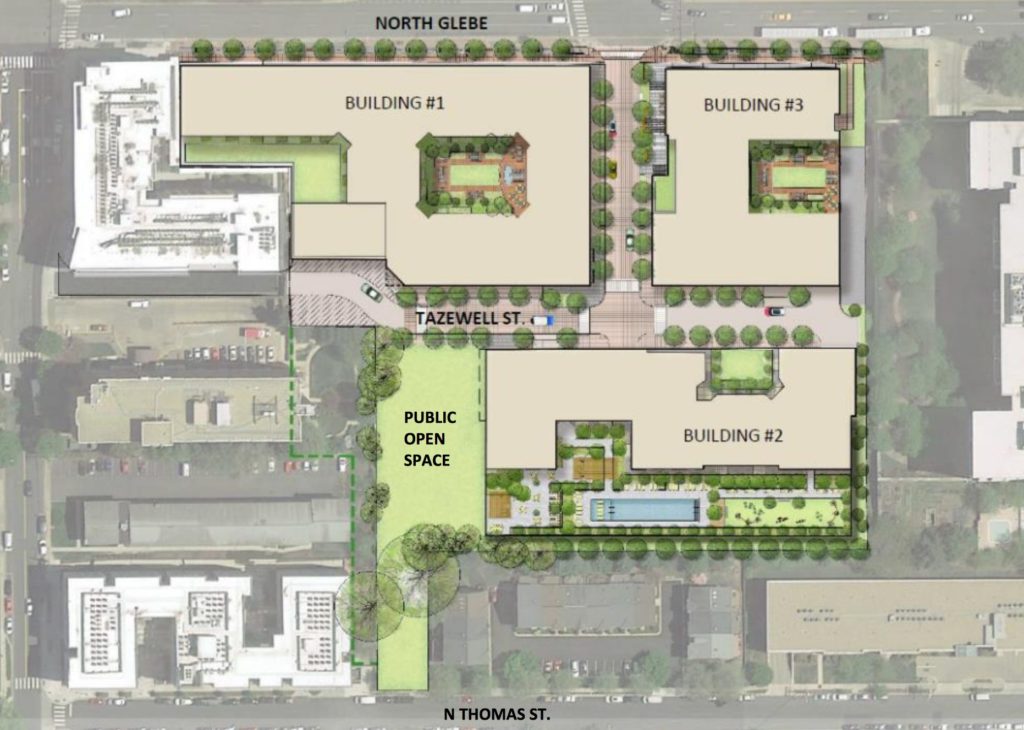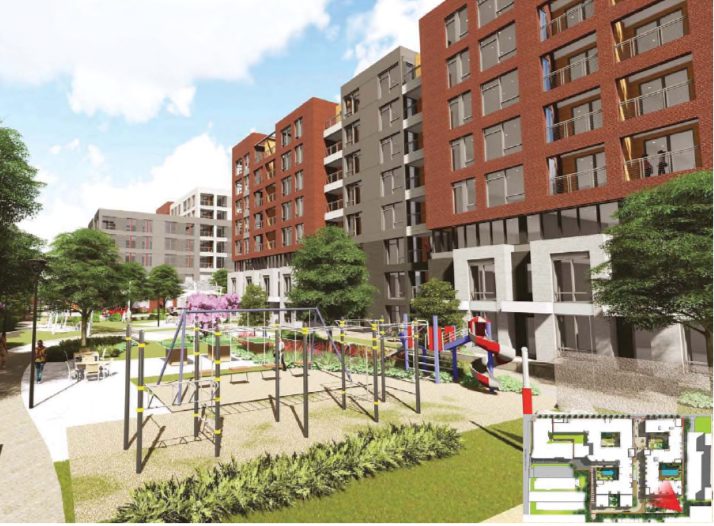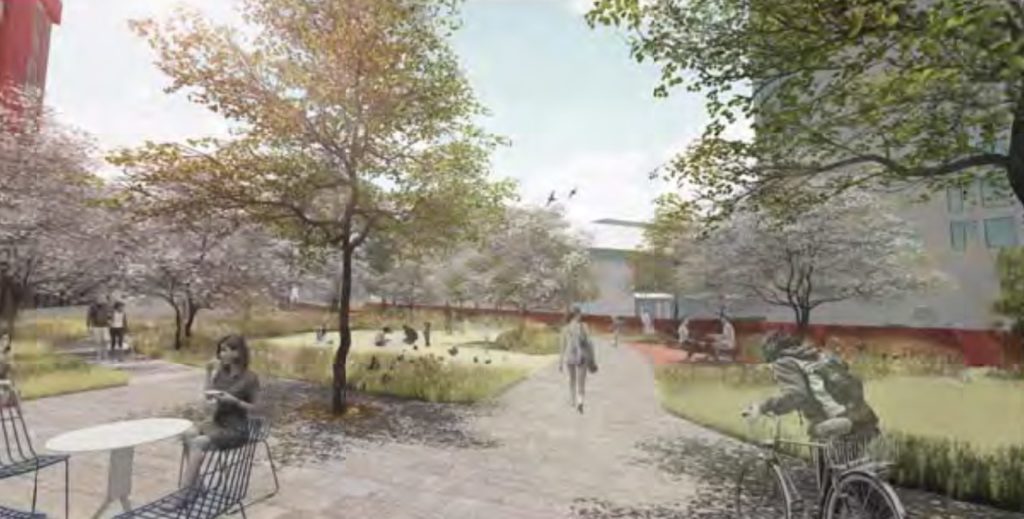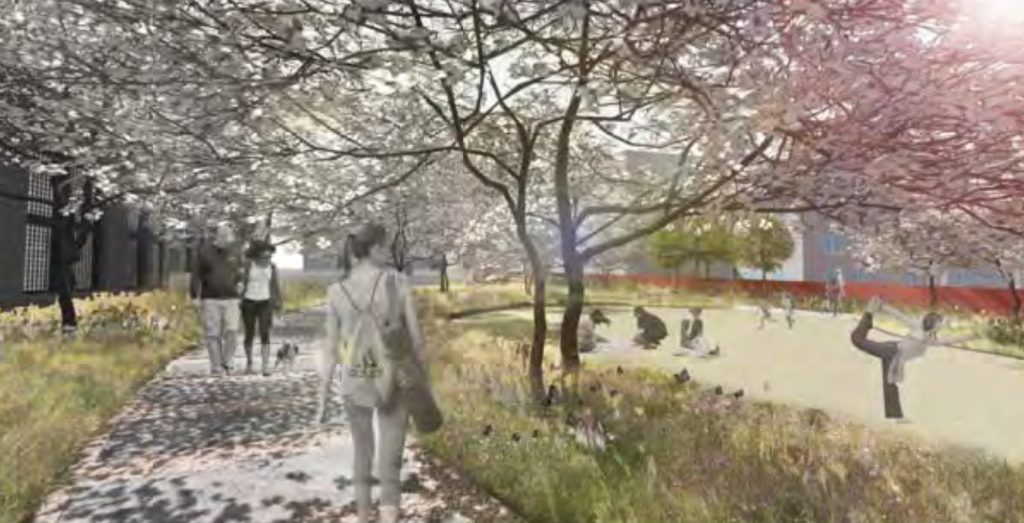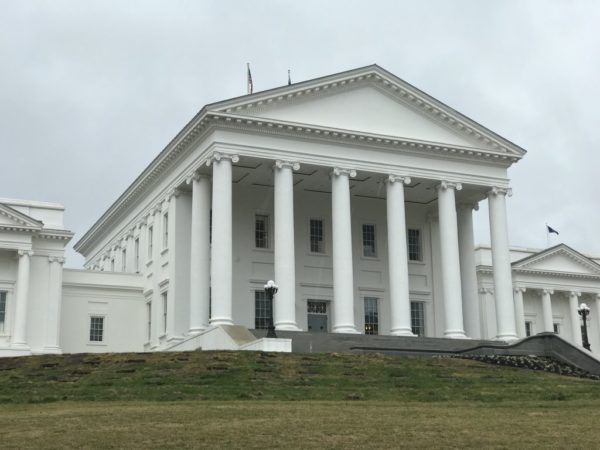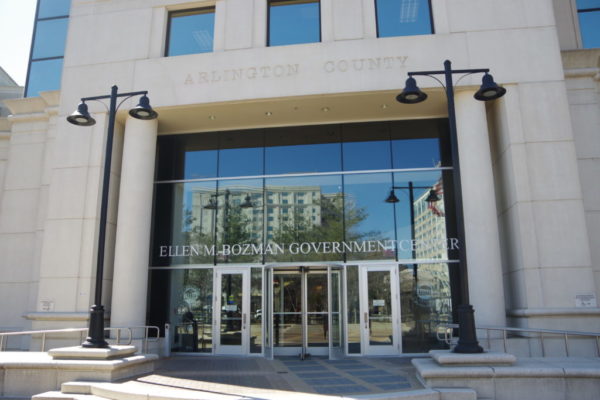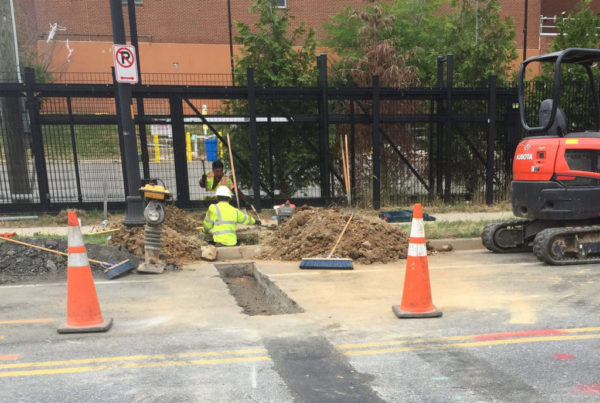Over the past two decades, parents say Arlington has become known as one of the best places in the country to raise a child with Down Syndrome.
Three local families with children with Down Syndrome told ARLnow that the county is renown for investing in resources, and its proximity to D.C. means parents are often uniquely suited to lobby for legislative fixes.
A “Tight-Knit” Community
Tom and Kay Tiernan have 20-year-old triplets named Jon, Liz, and Anna. Their daughter Anna was born with Down Syndrome and currently attends the county’s Arlington Career Center, which prepares her for the working world.
Anna plays in the Arlington Little League games for those with disabilities, which Kay says serves as an opportunity for parents to sit in the bleachers and swap stories about their children’s school experiences.
“Because Arlington is so small and with three high schools you can really connect and share what’s going on one act other’s back yard,” she said.
“A lot of it is knowing what’s out there that’s available to you,” said Rick Hodges, who is a father to 13-year-old Brita and 18-year-old Audrey — who also has Down Syndrome. “If you don’t know that there’s a resource then you don’t look for it, you can’t use it.
Hodges, who works as a journalist, said the “tight-knit” group of families with Down Syndrome children in Arlington helped clue him into resources like Early Intervention when Audrey was a baby, and the Department of Parks and Recreation’s therapeutic recreation activities when she was older.
Suzanne Garwood has two children with Down Syndrome — Connor, 16, and Sloane, who is 14, nonverbal and was recently featured in an advocacy video in New York City. She said there was once an opportunity in her work to move her family to Plano, Texas but she never considered it because she feared the social services wouldn’t be as strong as they are in Arlington.
“I would absolutely never leave the D.C. area,” she said. “I do think it’s unique.”
Although research has found disparities in life expectancies for people with Down Syndrome depending on their race, the genetic disorder itself affects all races equally and is caused by an extra copy of a chromosome in their cells.
“It’s a random genetic issue so you end up meeting all kinds of different people that you might not otherwise meet,” said Hodges of the community parents have formed.
Arlington’s community may be unique because of its proliferation of lawyers, journalists, and other high-powered professionals who fight for change.
“Maybe we are a little more aware of how to advocate for our kids and also our community very passionate anyway,” said Garwood, who is an attorney. “You have to be because a lot of times our kids don’t have voices for themselves, so they need us to do advocacy for them.”
One of the issues parents worry about is the housing shortage for people with disabilities, a problem exacerbated by Arlington’s overall shortage of overall affordable housing. The Medicaid program allows people with disabilities who turn 22 to receive housing vouchers, but Anna Tiernan’s parents say there’s no telling what position she is on the government waitlist.
“We don’t know if she’s 10th in line or 110th in line,” said Kay Tiernan, who works as a project manager for a tech company.
“Once you pass 21 it’s known as ‘the cliff’,” added Tim Tiernan.
“I do worry what it’s going to be like when they age out of school, and it seems it’s coming around the corner,” added Garwood.
All the parents who spoke with ARLnow said they hope banding together with disability advocacy organizations like The Arc of Northern Virginia and the National Down Syndrome Society, as well as volunteering on local government organizations like the Community Services Board, can help fix the problem.
“A few dads from Northern Virginia”
Rick Hodges did exactly that several years ago when he and other local parents pushed for what came to be called the Achieving a Better Life Experience (ABLE) Act.
The bill allows a disabled person to keep a savings account of up to $100,000 without jeopardizing their federal benefits, and was signed into law after Hodges says Northern Virginia parents leveraged their background as Capitol Hill staff and lobbyists to marshal bipartisan support.
The idea itself came from a seminar Hodges went to at Arlington Central Library about how to save up a college fund.
“They were talking about these things you can do to save and I realized that she might not go to college, I don’t know yet,” he said. “These systems for saving are based on a typical life. But Audrey may not have this kind of life, and it would ruin her government benefits.”


